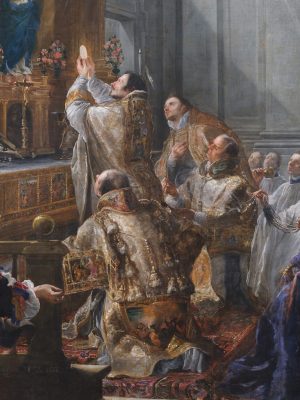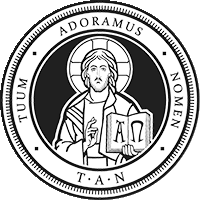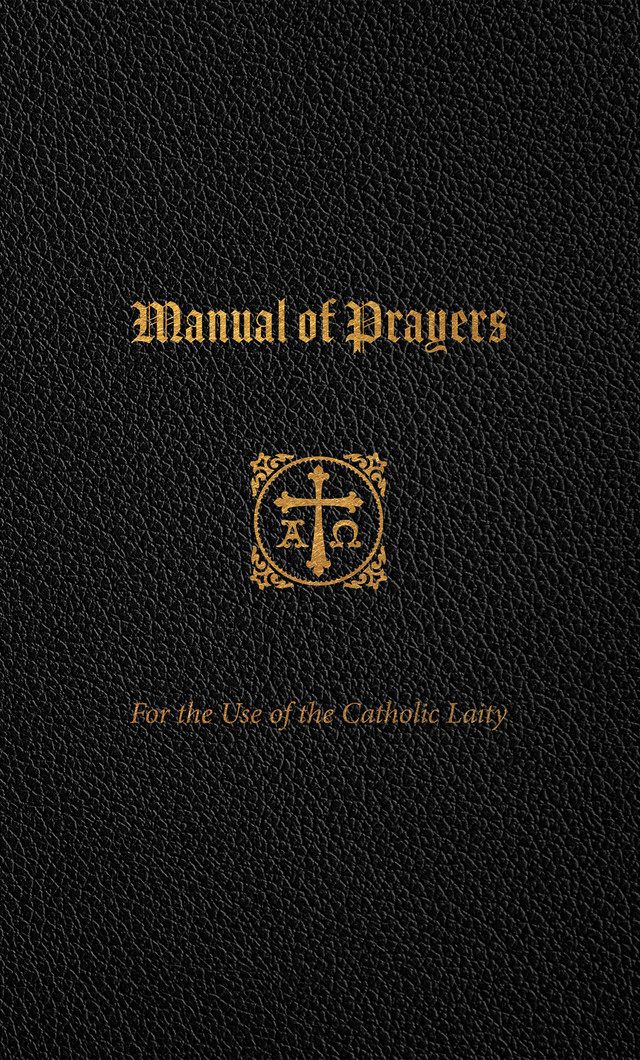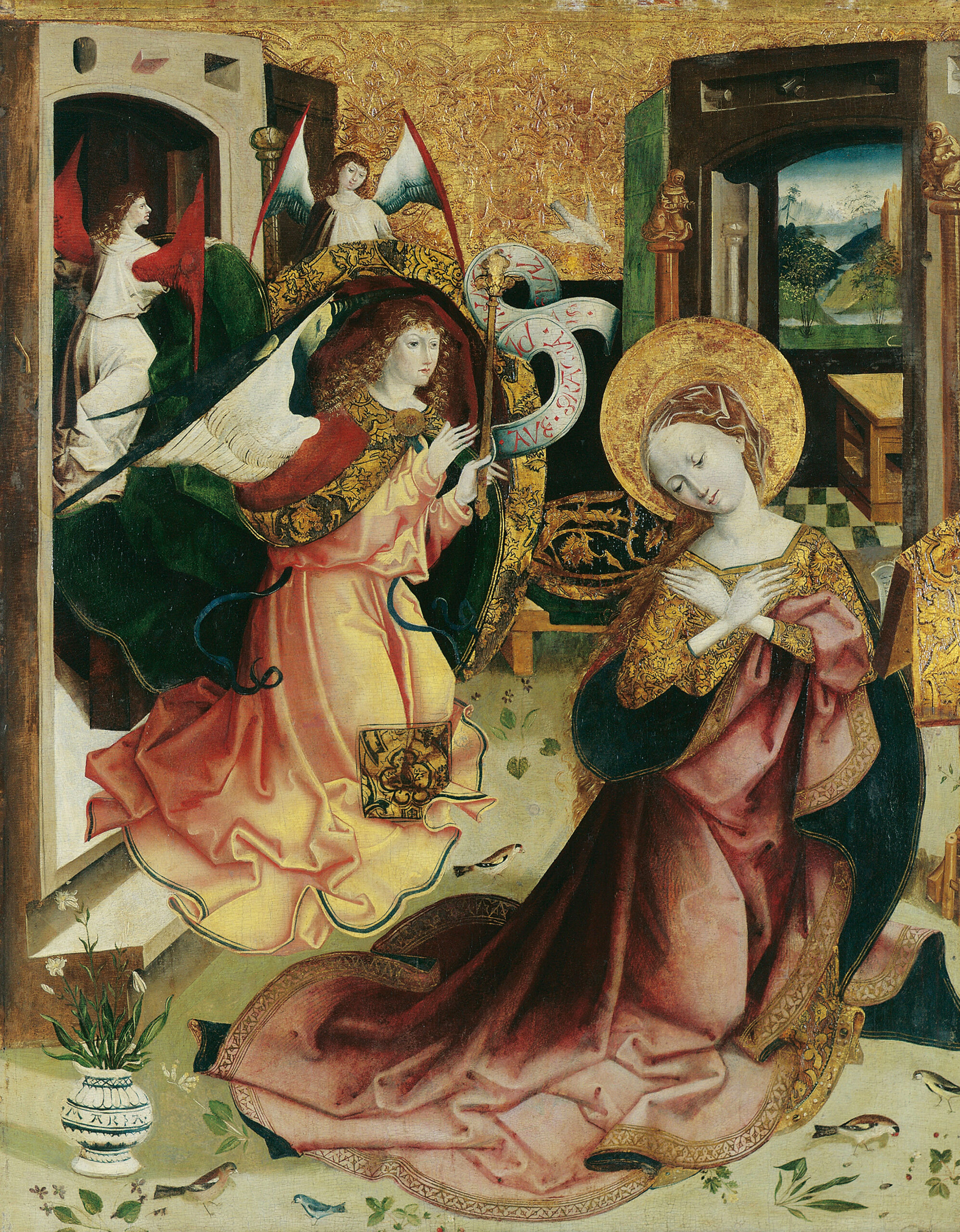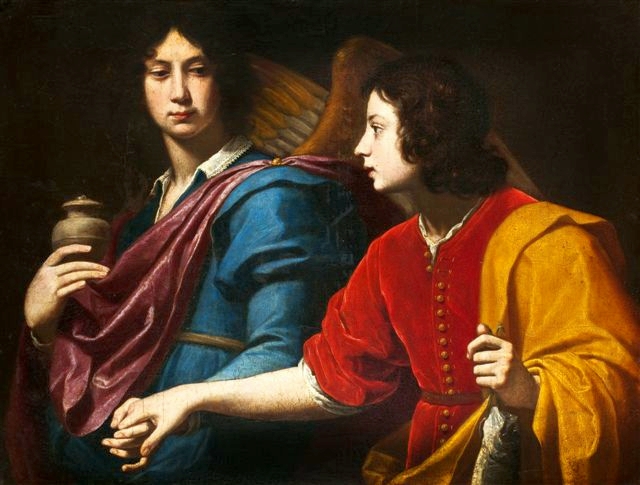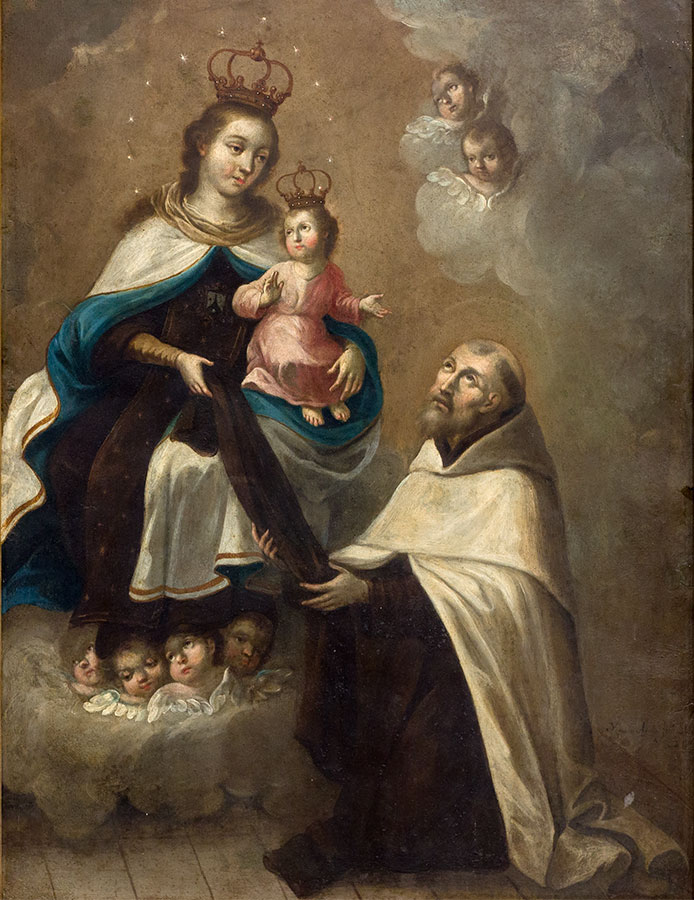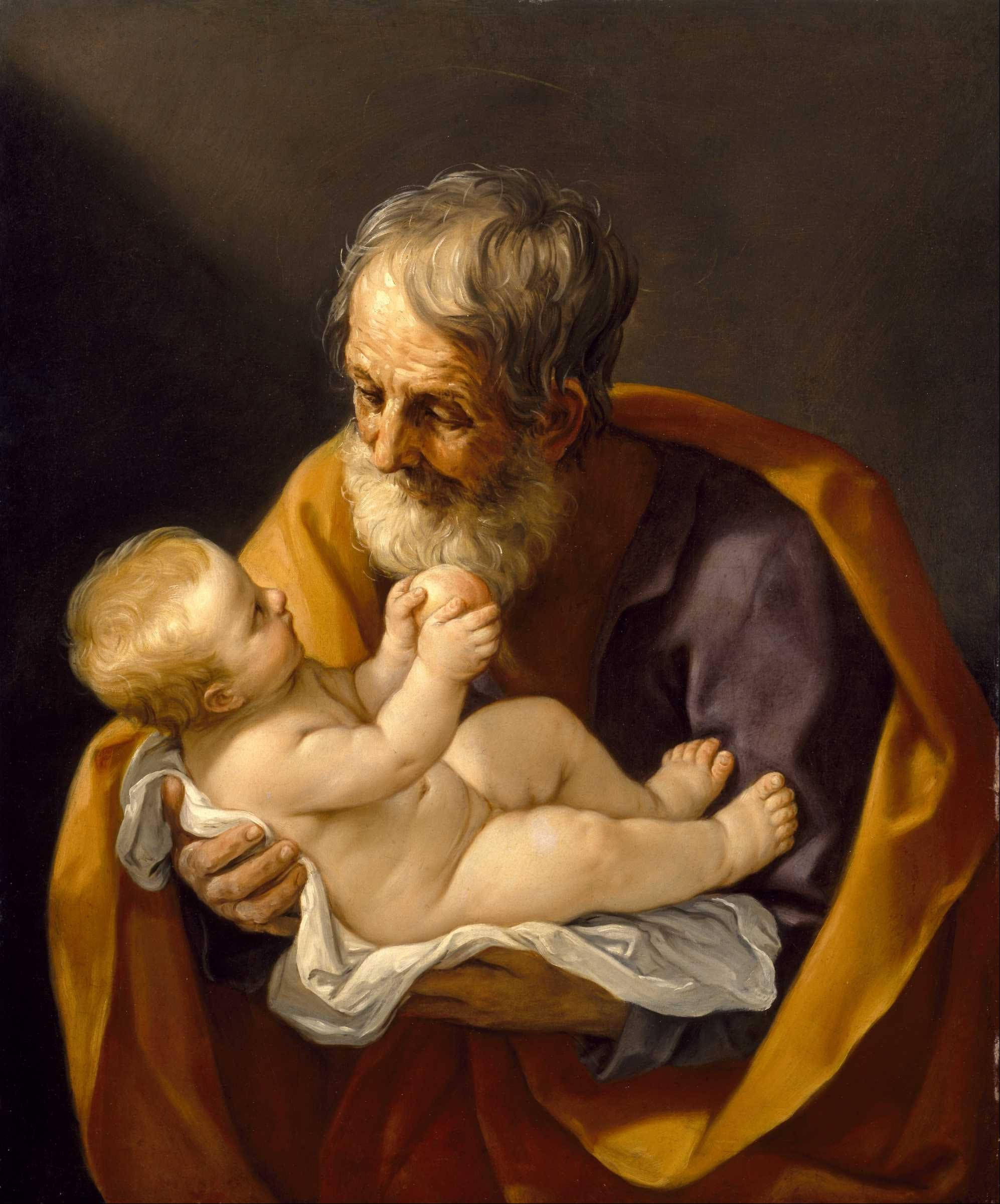Do we participate in Christ’s one sacrifice or merely remember it? What is the mystical reality of the Holy Mass each time it is celebrated? Read the Council of Baltimore’s remarkable answer to these questions.
The Tradition of Sacrifices
From the beginning of the world the servants of God were always accustomed to offer sacrifice to Him, by way of acknowledging His sovereignty and paying their homage to Him; and in all ancient religions, true or false, this worship of sacrifice was always regarded as a most solemn act of religion, due to the Deity worshipped.
In the law of nature, and in the law of Moses, there was a great variety of sacrifices: some bloody, in which the victim was slain; others unbloody. Some were called holocausts, or whole burnt-offerings, in which the whole host or victim was consumed in fire upon God’s altar, for His honor and glory; others were called sin-offerings, which were offered for sins; others were offerings of thanksgiving; others were pacific or peace-offerings, which were offered for obtaining favors of God—the word “peace” in the Scripture style signifying all manner of good and prosperity.
The Final and Ultimate Sacrifice
All these sacrifices of the law of nature, and of the law of Moses, were of themselves but weak and needy elements (Gal. 4:9), and only figures of a sacrifice to come, viz., that of Jesus Christ; in consideration of which sacrifice only, and of the faith of the offerers, by which they believed in the Redeemer to come, those ancient sacrifices were then accepted by the Divine Majesty, when they were accompanied with the inward sacrifice of the heart; but not for any intrinsic worth or dignity of the things offered, for no other blood but the Blood of Christ could wash away sins.
Hence, Saint Paul says (Heb. 10:5), quoting from the 39th Psalm: Sacrifice and oblation Thou wouldst not have: but Thou hast fitted to Me a Body. This gives us to understand that, by reason of the insufficiency of the sacrifices of the old law, Christ Himself would come to be our Sacrifice, and would offer up His own Body and Blood for us.
Accordingly, our Savior Jesus Christ, at the time appointed by His Father, having taken flesh for us, was pleased to offer Himself a Sacrifice for us, dying upon the Cross for the sins of the whole world. By this one offering, we were completely redeemed, inasmuch as our ransom was paid, and all mercy, grace, and salvation were purchased for us. Neither can there now be any need of His dying any more, or purchasing any other graces for us than those for which He has already paid the price of His Blood.
How We Participate in Christ’s Singular Sacrifice
Nevertheless, for the daily application of this one eternal Redemption to our souls, He not only continually appears in our behalf in the Sanctuary of Heaven, there representing and offering to His Father His Passion and Death for us, but He has also instituted the Blessed Eucharist, the night before His Passion, in which He bequeathed us His Body and Blood, under the sacramental veils, not only to be received by us as a Sacrament, for the food and nourishment of our souls, but also (mystically delivered) to be offered and presented by His ministers to His Father as a Sacrifice: not by way of a new death, but by way of a standing Memorial of His Death; a daily celebrating and representing of His death to God, and an applying to our souls of the fruits thereof.
This Eucharistic Sacrifice of the Body and Blood of Christ, daily offered under the forms of bread and wine, in remembrance of His Passion, is what we call the Mass.
ooo
This article is taken from a chapter in A Manual of Prayers for the Laity by the Council of Baltimore which is available from TAN Books.


